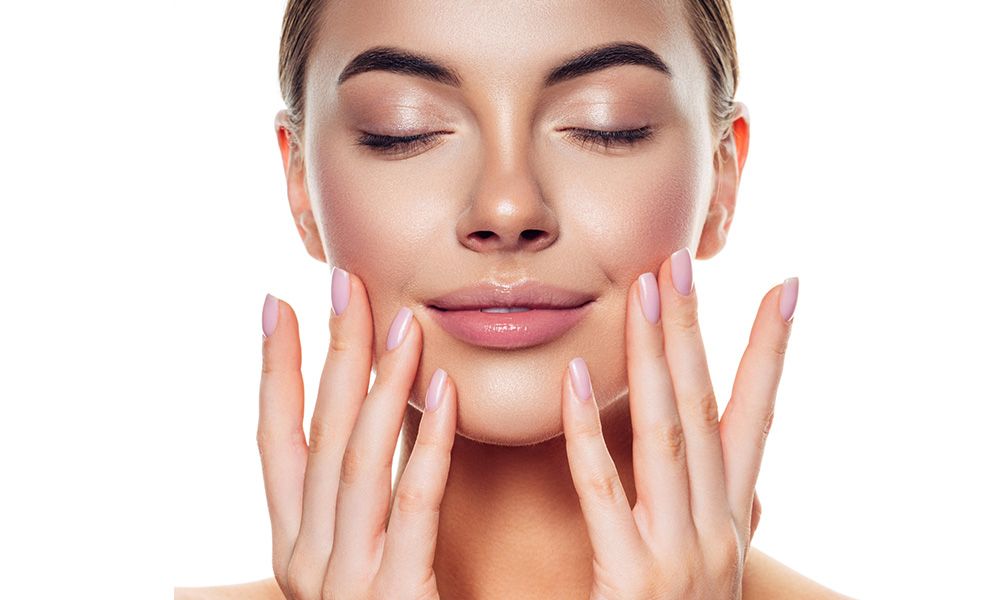Featured
“Tough” Skin Does Not Mean “Rough” Skin!

By Charlene Bollinger
January 24, 2024
When you think of beautiful skin, odds are the word “tough” probably does not come to mind. However, in order to experience beautiful skin on the outside, your skin has to be pretty strong on the inside too.
Your Skin is Tough
Over the years as I was preparing to launch CHARLíS, I spent a lot of time investigating ways to help women look and feel their best on all levels. During that time of intense research, I was obsessed about learning how skin works and how best to heal skin-related issues naturally from the inside out. That meant I read a lot of books, articles and reports about skin basics.
For example, just how does the body’s largest organ do all the things it does to keep you and me intact and “all together” day after day, often in the face of a harsh environment and an overall stressful life?
What I learned along the way is that our skin is pretty incredible. Besides keeping all your insides together and protected, skin also:
- Regulates body temperature
- Stores fat and water
- Produces the hormonal steroid vitamin D
- Is considered a “sensory organ” because of its millions of nerve endings and also its direct connection to the nervous system and the brain
- Is a waterproof barrier against all kinds of threats, including too much sun, airborne and soil based pathogenic microorganisms, bad weather, air pollution, and more
And it does all this while at the same time remaining flexible enough to walk, crawl, jump, kick, shimmy, dance, swim, bicycle, and jump up and down as we do. (1)
All this also means that your skin has to be TOUGH! But here’s the beauty of it: your skin doesn’t have to look tough (or rough) to act tough.
What Science Has Discovered about Collagen and Skin Resilience
In different parts of the body, skin takes on a variety of thicknesses as well as textures, colors, and other characteristics. That being said, for decades, researchers have tried to find out what makes our skin so strong and durable overall.
Along the way, they asked the question: is there a single substance that can help with vital aspects of skin health like moisture retention and clearing up blemishes while at the same time giving “free movement” and protection from falls and other threats?
In 2015, a team from University of California, Berkeley discovered the answer. Want to know the one substance in skin that makes all this happen? In a nutshell, it’s collagen.
The Berkeley team found that it is just the right amount of skin-fortifying collagen that not only can help your skin maintain its moisture and give a healthy glow, but can also help to absorb shock when faced with a physical stress.
"[Skin's] tear resistance is remarkable," said UC Berkeley professor of engineering Robert Ritchie, co-head of the study, in a recent article for the online journal Inside Science. "What's happening is the collagen is moving in such a way to absorb energy and carry more load." (2)
Ritchie’s team discovered that it was collagen production in the middle layer of the skin, called the “dermis,” that really had the focused job of preparing the body for impact. According to the report published in the journal Nature Communications, the dermis is where the strongest tendrils of collagen exist in just the right structure and distribution to create skin resiliency. (3)
Not to go into too much detail, but here is a brief synopsis of how this fascinating process works. Whenever there is a pull on the skin (such as an accident that could result in a wound), the twisted collagen fibers that are in the dermis rotate in the direction of the point of stress. As tension increases, the fibers straighten up; think of how a twisted cord in one of those old- fashioned telephones straightens as it is pulled. If the tension becomes too intense, the large collagen fibers break into tiny strands which then slide apart. The point of this is to disperse the energy of the tension so that it is not concentrated in just one area. This prevents any potential tears in the skin for as long as possible and also prevents any cuts that do happen from spreading. Of course, all of this occurs in a split second and begins the minute the skin feels tension in an area. Wow, our largest organ is pretty amazing!
How You Can Help Your Skin Stay “Tough”
Ensuring healthy collagen production as you age is, hands down, the best thing you can do to keep your skin not only looking great, but also to help it protect you when a threat strikes—whether it is a nasty fall, a burn, or simply the need to speed up healing and prevent infection after surgery. But here is the sad part: experts agree that for most people not focused on living a healthy lifestyle, natural collagen production reduces by 1-2% each year after age 30. (4)
It doesn’t have to be this way, however. Here are three things you can do NOW to keep collagen levels high as you age:
#1 Boost your Vitamin C intake.
Vitamin C is needed for collagen synthesis specifically in the epidermis and dermis levels of the skin. (5) It is also sun protectant and a proven anti-inflammatory. You can up your intake of C internally by going for more C-rich whole foods like kale, parsley, and peppers.
You can also reap the benefits of more C by using all-natural, non-GMO luxury skincare products like the CHARLíS Breath of Life Serum. This amazing face elixir contains wild harvested sources of natural vitamin C in the form of essential oil extracts of Citrus Paradisi (grapefruit) and Citrus reticulata (mandarin orange).
#2 Don’t overdo sun exposure.
Getting a little bit of sunlight on your skin is definitely the best way to get in much-needed vitamin D. That being said, it is important to know when enough is enough. According to a Mt. Sinai School of Medicine study, individuals with sun-damaged skin had 20% less collagen content when compared to those who did not have sun damaged skin. (6)
And if you have to go out in the sun for longer than 20 minutes, be sure to wear a hat as well as CHARLíS Neutral Tinted Skin Moisturizer with SPF 25 sun protection. This amazing sunscreen contains zinc oxide as well as vitamin C-rich mugwort extract. It also contains allantoin extracted from the comfrey plant. Allantoin is a phytonutrient that provides deeply soothing relief for even the driest skin types.
#3 Get your beauty sleep!
Finally, make sure to get plenty of quality sleep each night. Did you know that sleep deprivation can hinder normal skin function, including lowering collagen production? This is because collagen synthesis is part of normal immunity. Yep, that’s right—immune function plummets too with each night you don’t get the amount of deep shut eye that your whole body, including your skin, needs. (7)
For the most rejuvenation, be sure to use CHARLíS Restorative Anti-Aging Overnight Serum to nourish your skin while you sleep!
Achieve Beautiful (and Strong) Skin with CHARLíS!
Hopefully from now on when you think of beautiful, healthy skin, you not only see a face (your face!) that is soft, supple, and full of that “rosy, youthful glow” but you also think of skin that contains enough collagen to be “tough enough” to bounce back after any kind of stressor.
The bottom line: you absolutely can have healthy skin and you can look and feel your best every day with CHARLíS. Be sure to check out our luxury Face Collection and Skin Collection now to learn more.
References:
(1) Anatomy of the Skin
(2) The Skinny On Skin: What makes skin so tough?
(3) On the tear resistance of skin
(4) Decreased Collagen Production in Chronologically Aged Skin
(5) Collagen Synthesis
(6) Collagen alterations in chronically sun-damaged human skin
(7) Can poor sleep affect skin integrity?
subscription
join our exclusive beauty community
Elevate your beauty journey with personalized recommendations and stay connected with a community that shares your passion for self-care. Subscribe now and embark on a beauty adventure with us!
